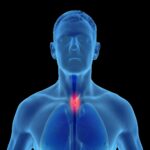At the 13th Probiotics, Prebiotics and New Foods Congress, Microbiomepost invited Silvia Turroni from the University of Bologna to share insights from the session “The Microbiome and One Health,” which she chaired. The session brought together leading international experts who explored how the microbiota bridges human, animal, and environmental health within the One Health paradigm.
Paul Wilmes (University of Luxembourg) presented ExpoBiome, an innovative computational tool that predicts virulence and antimicrobial resistance genes in a One Health context. His talk underscored the dynamic exchange of microbial communities among humans, animals, and built environments — a key factor in the spread and recovery of both beneficial and harmful microorganisms.
Marika Falcone (IRCCS San Raffaele, Milan) examined the molecular crosstalk between the gut microbiota and autoimmune diseases, focusing on type 1 diabetes and multiple sclerosis. She highlighted the pivotal roles of the intestinal barrier, secondary bile acids, and molecular mimicry in modulating immune tolerance and autoimmunity.
Closing the session, John Cryan and Jens Walter (APC Microbiome Ireland, University College Cork) introduced the concept of a “restoration diet” — a high-fiber (45 g/day), dairy- and grain-free dietary strategy supplemented with Lactobacillus reuteri. This nutritional intervention aims to restore lost microbial functions, with preliminary data showing improvements in inflammatory and metabolic markers, suggesting a promising route for preventing chronic non-communicable diseases through microbiota modulation.Altogether, the session highlighted the need for an integrated One Health approach to understand and leverage the microbiome’s role across ecosystems — from molecular mechanisms to public health impact.








